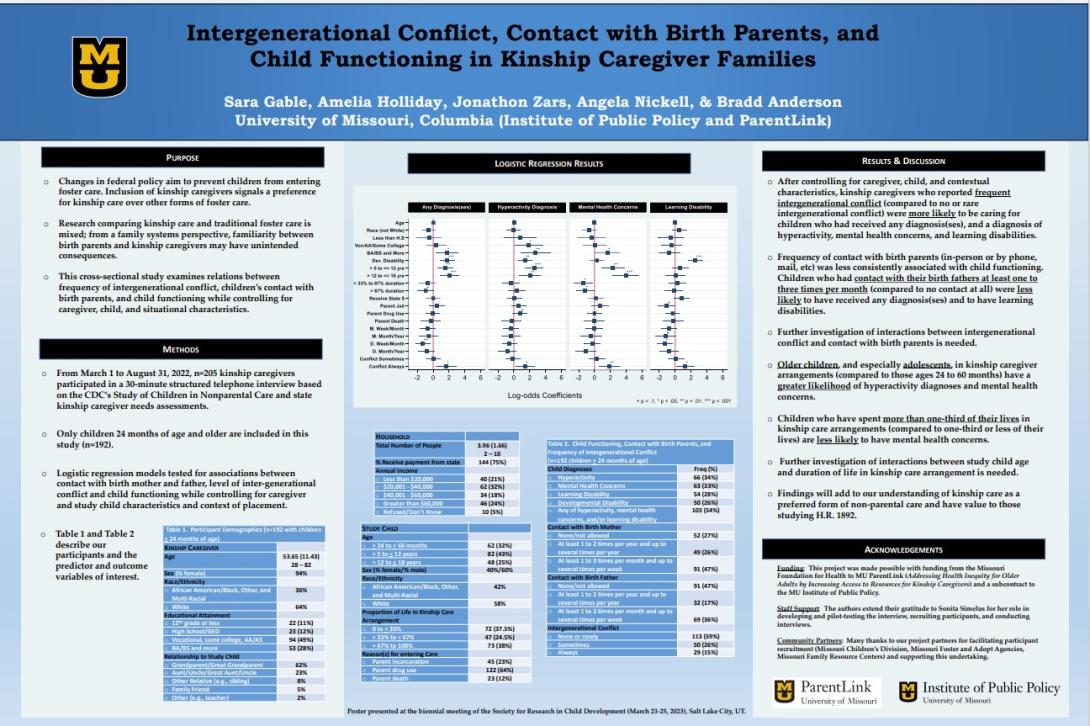
Author: Sara Gable
On March 23, 2023, Sara Gable presented “Intergenerational Conflict, Contact with Birth Parents, and Child Functioning in Kinship Caregiver Families,” at the biennial meeting of the Society for Research in Child Development. The research was based on a needs assessment that IPP conducted for MU ParentLink and was made possible with funding from the Missouri Foundation for Health.
Recent changes in federal policy aim to prevent children from entering foster care. The 2018 Family First Prevention Services Act (H.R. 1892) focuses on mitigating the detrimental effects of foster care by providing birth parents with evidence-based services and increasing supports for kinship caregivers. The inclusion of kinship caregivers signals a preference for kinship care over other forms of foster care. Kinship caregivers include relatives and familiar non-relatives who become primary caregivers. Kinship care is viewed by experts as more family-like, less restrictive, and more stable than traditional foster care (Lin, 2018). Research comparing family dynamics and child outcomes between kinship care and traditional foster care, however, is mixed. From a family systems theory perspective, familiarity between birth parents and kinship caregivers may have unintended consequences.
The current cross-sectional study examined relations between frequency of intergenerational conflict, children’s contact with biological parents, and child functioning, specifically diagnoses of learning disabilities, mental health concerns, and hyperactivity. After controlling for caregiver, child, and contextual characteristics, kinship caregivers who reported frequent intergenerational conflict (compared to no or rare intergenerational conflict) were more likely to be caring for children who had received any diagnosis(ses), and a diagnosis of hyperactivity, mental health concerns, and learning disabilities. Frequency of contact with birth parents (in-person or by phone, mail, etc) was less consistently associated with child functioning. Children who had contact with their birth fathers at least one to three times per month (compared to no contact at all) were less likely to have received any diagnosis(ses) and to have learning disabilities.
The study results will add to our understanding of kinship care as a preferred form of non-parental care (versus non-kin foster care) and have value to those studying H.R. 1892.
Gable, S., Holliday, A., Zars, J., Nickell, A., & Anderson, B. (March, 2023). Intergenerational Conflict, Contact with Birth Parents, and Child Functioning in Kinship Caregiver Families. Poster presented at the biennial meeting of the Society for Research in Child Development, Salt Lake City, UT.
The project was funded by Missouri Foundation for Health to MU ParentLink (Angela Nickell) and a subcontract to MU Institute of Public Policy. It was conducted by Amelia Holliday (IPP graduate research assistant), Sonita Simelus, MD, MPH (former IPP Research Analyst), Jonathon Zars (IPP undergraduate research assistant), and Sara Gable, PhD (IPP Director).